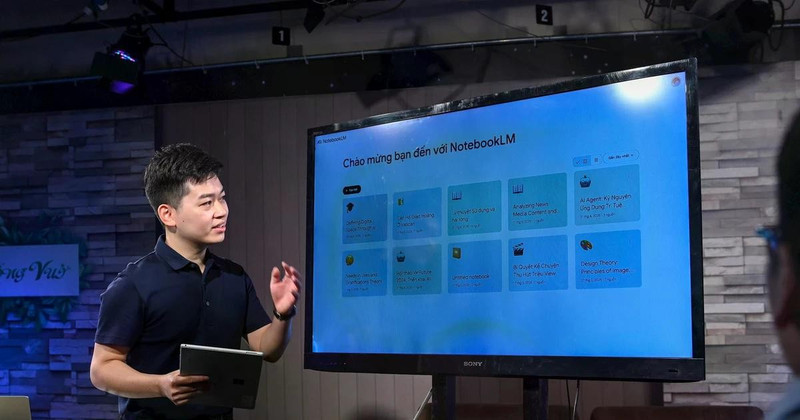Ready for your dream to reach new heights
Three years into the implementation of the National Strategy on Research, Development and Application of Artificial Intelligence (AI), Viet Nam has achieved several encouraging initial results. However, the rapid growth of AI also presents significant challenges in terms of management and governance, not only for Viet Nam but for all countries around the world.

"We need Vietnamese technology for the Vietnamese people"
To ride the AI wave, Viet Nam must focus on developing human capital, resources, and tools. This includes training a high-quality workforce, encouraging and investing in research and development activities related to AI, as well as building and leveraging databases for content sharing and proactive national data security. Crucially, it is essential to develop a large-scale Vietnamese language model as the foundation for AI-generated solutions built on Vietnamese data, created and controlled by the Vietnamese.

Viet Nam has a young population, with approximately 67.5% of its citizens of working age, well-positioned to adapt to technological changes. Around 84% of the population owns a smartphone. The 4G network covers 99.8% of the population, generating vast data. Given the localised and specific nature of data, only Vietnamese people can solve domestic challenges. Therefore, we are standing at the edge of a breakthrough.
Viet Nam should not remain a mere end-user of foreign technology, it must create its own: Vietnamese technology for Vietnamese people.

"We must protect both competitiveness and uniqueness"
Vietnamese enterprises currently compete based on low-cost labour and productivity. In the future, those two factors alone will not suffice. We must simultaneously strive for excellence to achieve superior productivity and service quality to compete globally. We need AI capabilities developed in Viet Nam, for Viet Nam, not only to create internal competition but also to protect national competitiveness and uniqueness.
To achieve this, we must address five key issues. First is the capability to develop AI applications tailored to Vietnamese users. Second is data ownership, since AI is built on data enrichment, we must consolidate and control our data. Third, we must develop a robust technological infrastructure to enable smooth AI integration into enterprises and empower domestic AI development. Fourth is nurturing abundant resources and attracting researchers and technologists from around the world. Finally, we need to open up the domestic AI market, helping businesses recognise the value of AI, in boosting productivity, cutting costs, and more.

"Viet Nam has all it takes to become a leading AI nation"
With its goal of becoming one of the top four ASEAN countries in AI research and development by 2030, Viet Nam is embarking on an ambitious digital transformation journey. The country’s AI market is projected to reach 1.5 billion USD by 2030, growing at 15.8% per year. The number of AI startups has also surged, from around 60 companies in 2021 to 278 in 2024.
Notably, Viet Nam currently ranks 39th out of 139 countries and territories in AI readiness. About 50,000 graduates in information technology and engineering are trained each year, contributing to a strong talent pipeline.
Viet Nam has all the potential to become a leader in AI. With close collaboration, targeted education, and a strong digital mindset, I firmly believe Viet Nam will not only reach the top four in ASEAN for AI development but also rise to become a global AI powerhouse.
Intel is immensely proud to support Viet Nam in its mission to promote AI adoption and in fulfilling the Government’s priority of equipping its citizens with the skills needed to thrive in the AI era. By creating opportunities for people to access AI knowledge, we are not only preparing individuals for the future job market but also cultivating a culture of continuous learning and innovation, contributing to the advancement of Viet Nam’s digital economy.








